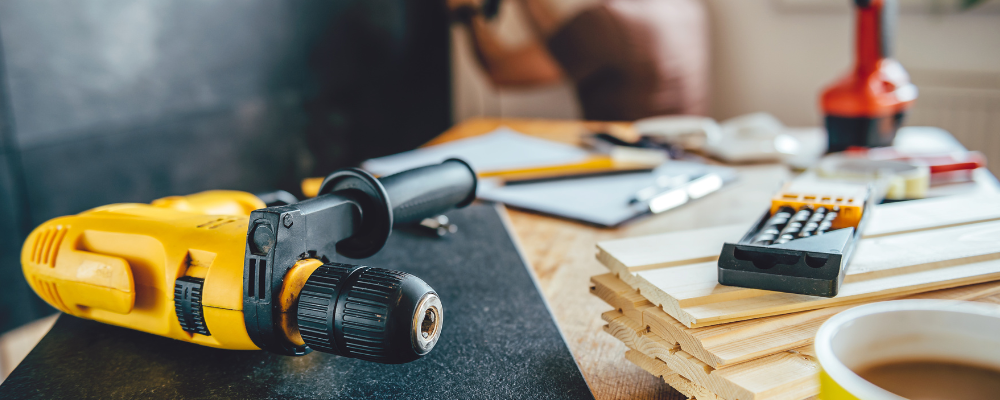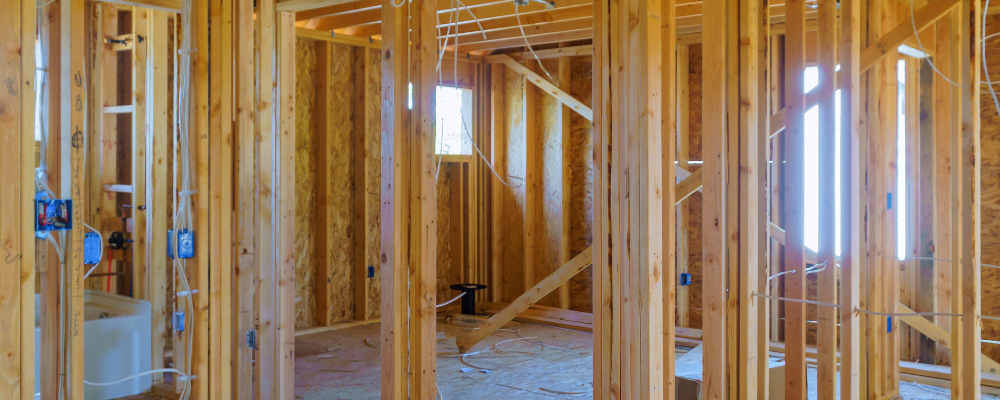Can You Really Flip Houses With No Money?
Real estate investors don’t need to fund deals with their own money. There are various financing options that make it possible for investors to fund deals without having to use any of their own capital. When it comes to real estate investing, using other people’s money or OPM, is a common way to fund deals and successfully flip houses with no money. This includes purchasing the property, upgrading it and then selling it again.
From hard money loans that are geared to fix and flips, to partnerships with other real estate professionals, to seller financing, private money lenders and beyond. There are a variety of options for investors who need financing so that they can flip houses with no money, and these all begin with identifying the best financing strategy for your needs.
Jump To
Ways To Flip Houses With Almost No Money
Flipping houses requires a significant upfront capital investment to purchase a property and then renovate it. The costs associated with flipping houses then extend beyond the purchase and renovations, to include insurance, utilities, marketing and more. Which means that the entire project can rack up costs quickly and don’t end with the purchase, but instead continue until the house is sold.
While many people won’t have the level of funds required to purchase the property, as well as renovate it, there are alternative options that will allow for flipping houses with no money, or very little. The trick is to find the best alternative that suits the investor’s specific financial needs and investing strategy. Here are some of the most successful ways to flip houses with no money.

Hard Money Lenders
Hard money lenders are specialized lending companies that typically provide short-term loans to real estate investors. Hard money lenders will usually have specific fix and flip loans which are suited to house flipping particularly. These loans will be about 12 months and they will cover both the purchase and the renovations.
Hard money lenders have higher interest rates, which can range from 9% to 15% in many cases. These are to mitigate the risk that the lender is taking on with the loan, and due to the fact that the loan is short term. Hard money lenders each have their own lending criteria, there are no standard criteria, so investors need to check with the hard money lender they have chosen, before applying.
Why investors use hard money lenders for house fliping:
- Fast funding: This allows investors to get quick access to the funds they need and beat the competition by providing funds quicker than many other investors. Along with this fast funding comes quick proof of funds letters, which give investors the bargaining power to secure deals on the proviso that they will have the funds available.
- Purchase and renovation are both covered: Unlike many other loans, fix and flip loans offered by hard money lenders are geared to this purpose. Which means that they offer financing for both the purchase and the renovation of the property.
- Easier to qualify for: Hard money loans have less stringent lending criteria which makes them easier to qualify for. For real estate investors who are just starting out, or don’t qualify for loans with other lenders, this can be a good solution. Getting financing requires very little hassle and the process is smooth.
- Flexible loan terms: One of the biggest attractions of hard money loans is the flexible loan terms that they offer. Loan terms can be adjusted to each investor, which means that these loans aren’t a one-size-fits-all.
- Property as collateral: Hard money loans are based on the property deal itself, which means that the borrower’s personal financial history is of less importance. The property is used as collateral for the loan, and the After-Repair Value is what the loan is often based on.
Private Lenders
Private money lenders can be a friend, colleague, family member, or anyone who has the money to lend an investor for their real estate purchase. Private money lenders are not associated with any financial institution, they are simply individuals who have money to lend. The lending terms on these loans will vary, depending on the private lender and borrower’s agreement.
The biggest attraction to working with private lenders is the fact that investors can get access to the cash almost instantly, in most cases. There’s less red tape when it comes to qualifying for private money loans, and in many cases the loan repayment terms are flexible according to the borrower’s needs.
This means that investors who are wanting to flip houses with no money to put down can get private lenders to fund their entire property deal, including the down payment, closing costs, property purchase, renovations and more.

Wholesaling
Investors without any money can still get into real estate, without having to actually purchase a home. Instead, they can participate in real estate wholesaling, which allows them to be a part of the real estate investing world, without owning property. The idea is to make a large sum of money over a short period of time by finding great property deals, getting them under a contract and then finding a buyer to sell the contract to. The contract is essentially, the rights to purchase a home.
Wholesalers will make a percentage profit off the final sale which is typically anywhere between 5% and 10%. It’s important to bear in mind that this is an active way to invest in real estate and will require extensive research into the real estate market, a lot of networking with buyers, and negotiating to get contracts sold.
Wholesaling is a low-risk way for investors to hit the ground running in the real estate industry. Investors don’t need to fork out a lot of capital and a profit is easy to make. However, it all comes down to finding the right properties to wholesale, as this is the key to making the strategy a success.
Tapping Into Your Home Equity
Another proven successful method to invest in real estate without a large amount of capital upfront, involves tapping into the home equity that has already been built in an existing home. Those who already own a property can leverage this property to purchase an investment property.
Leverage is essentially when a real estate investor uses debt in the form of other people’s money (OPM), along with equity in the form of a down payment, to purchase an investment property and therefore increase their return on investment. The way to do this is via a cash-out refinance of the existing property, whereby the owner can re-mortgage their home and pocket the difference in cash.
Another option is to use a home equity loan or a home equity line of credit (HELOC), which is a good idea for house flipping as this gives a real estate investor access to a line of credit to use for renovations. There will need to be a certain amount of equity built up in the home, in order to use home equity for this purpose. This amount varies according to each lender, so it’s a good idea to find this out first.
So, for real estate investors who have built up equity in an existing property, they can use this for their real estate journey and therefore won’t need a large amount of capital upfront. Retaining at least 20% equity in the existing home is a good way rule of thumb for investors who are tapping into their home equity.

Partnering With Experienced Real Estate Investors
Another solution for those who have very little money to start their real estate investing journey, is to partner with experienced real estate investors who are currently flipping houses. Having a partner means that a real estate investor can negotiate a way to tap into their financing or partner with them on deals they’re already working on.
This will give investors who have minimal funds, the opportunity to dip their toes into the house flipping world, without having to fork out the funds themselves. It also gives new investors the opportunity to learn from someone more experienced and learn where to add value in a house flipping partnership, particularly if you’re not contributing funds.
It’s a good idea to already have a house flipping deal in mind first, or have the rights to a contract, so that you can bring something to the table to entice a potential partner to work with you. Partners will be looking for someone who has a good deal in mind, or has good buyer and seller contacts, as well as someone who has good contractor contacts.
Bird Dogging
Bird dogging refers to the act of scouting profitable real estate properties on behalf of an experienced investor. This means that an investor can begin investing in real estate, without having to use their own funds, by looking for good house flipping properties with investment potential and then alerting an investor of the property. Those who participate in bird dogging will typically receive compensation for their work, in the form of commission or an hourly rate.
This is a good way for new investors to get a foot in the door for house flipping, without having to put down a lot of their own capital at the outset. Investors can gain experience and make valuable contacts for their house flipping journey, and once they begin they will have a better idea about how the process works.
There is money to be made with bird dogging in real estate, however it’s crucial to get everything in writing. No information should be passed on until there is a clear written agreement between the two parties. Those who do bird dogging can make anywhere between 2%-10% of the profits of the deal, without having to put down any money to purchase a property.

Seller Financing
While less common, seller financing is still an option that can be used, if a buyer can find a seller willing to enter into this type of agreement. Seller financing involves the seller providing the financing of the property for the buyer and essentially acting as the lender. This means, the buyer will pay off the property in monthly installments to the seller, eliminating the need for a lender altogether.
For investors who don’t have access to a large amount of capital upfront, this can be a good alternative, but it may require pitching potential sellers with the idea to make it sound more attractive. Sellers may want to see an investor’s track record, credit score, income verification and other details that a lender would want to see.
When it comes to house flipping, this strategy can be done by showing the seller the plans the buyer has for the house renovations. Then, showing the buyer what the house could potentially sell for, once the renovations are complete. Then also giving them a timeline for project completion, as this will be when the house would be sold and the investor could pay the loan back.
Crowdfunding
These days, the internet can be a powerful tool for many things, not least of which is real estate investing. Investors who don’t have enough money can appeal to a bunch of investors online through crowdfunding websites, to supply the funds they need for their project.
This requires putting together a detailed proposal of the project and explaining its profitability, and then submitting this to a crowdfunding website. This way, real estate investors can get funding from a pool of sponsors, which could cover all their costs. There is a low barrier to entry for this funding alternative, and the loan terms can be flexible, depending on the pool of investors.
Through crowdfunding real estate platforms, investors can get access to exclusive deals that they may not have been able to. Some platforms are open to general investors, while some require investors to be accredited before they can contribute funds. Either way, crowdfunding offers those who are flipping houses the opportunity to find funding that they may not have been able to find otherwise.
Final Thoughts - Which Is The Best Option For Financing A Fix & Flip?

If you have the know-how and ambition, it is possible to flip houses with no money, and make a profit. Utilizing strategies such as wholesaling and loans from hard money lenders or private lenders, you can acquire properties to be flipped for a profit, even when you don’t have the cash to buy them yourself.
Of course, with any investment strategy, understanding the risks is just as important as understanding your exit strategy and potential reward. Each strategy has its own benefits and risks, so it’s vital to consider each of these and look into each strategy in detail, before deciding which is best for your fix and flip deal.
House flipping needs a financing strategy that is going to fulfill the following criteria:
- The loan should be issued quickly so that house flippers can beat the competition and purchase an investment property before anyone else does.
- The loan should offer proof of funds, so that house flippers can use this to show the sellers that they can purchase the home.
- The loan should be short-term as these projects take a few months.
- If possible, the loan should offer interest-only payments, and then a balloon payment at the end. Which means that the investor can pay off the loan in its entirety once the property is sold.
Ultimately, the best financing option for flipping houses with no money, depends on each investor and their unique financial situation, as well as their real estate investing goals.
FAQ
Conventional loans and FHA loans do not allow for the use of a personal loan to cover a down payment, however other lenders do. A hard money lender or private lender, for example, will allow a personal loan to be used to cover the down payment. However, bear in mind that personal loans come with an expensive rate tag, so this is most likely not your best option for covering the down payment.
Traditional lenders will typically require a large down payment on an investment property, this can be up to 30% of the purchase price in some cases. For real estate investors who have very little money to put down, this may not be an affordable option.
Conventional mortgage lenders will also require a good credit record and score, with assets and income verification. For investors who don’t have a stellar credit history, this may not be a viable alternative. Most traditional lenders will expect borrowers to have 6 months’ cash reserves available on hand too, for new investors or investors without a large amount of capital, this simply isn’t an option.
The other types of lenders that we have mentioned above (such as a private lender) have much less stringent lending criteria, have more flexible loan terms, and are based on the property itself instead of the borrower’s personal financial standing.



